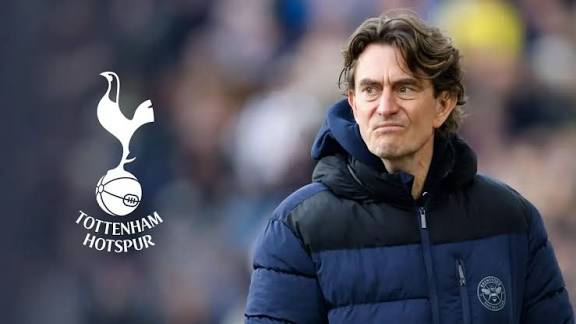MOHAMMED KUDUS SAYS ‘ONLY ONE PERSON’ AT THE CLUB WANTED HIM TO STAY ẤT WEST HAM DESPITE HE’S THEIR BEST PLAYER
In a summer packed with Premier League drama, few transfers have stirred as much controversy as Mohammed Kudus’ surprise move from West Ham United to Tottenham Hotspur. One line in particular has repeatedly made the rounds: “only one person at the club wanted me to stay”—a claim many interpret as meaning that Jarrod Bowen was the only person at West Ham who truly wanted Kudus to remain. This remark, coupled with Kudus’ declaration that he “only wanted Spurs,” has opened up a wider discussion about loyalty, ambition, club culture, and the complicated human side of professional football.
Here’s the full story: what Kudus said, how the move happened, reactions from the clubs and fans, and what this may mean for his career and for West Ham.
From Ajax to West Ham – A Quick Catch-Up
Mohammed Kudus joined West Ham in 2023 from Ajax for a reported initial fee in the region of £37-£38 million. At the London Stadium, his performances were a mixture of flashes of brilliance and frustrating inconsistency. He delivered impressive technical skill, dribbles, and moments of real influence, but also had lean spells, positional misalignments, and off days that made it hard for many to pin him down as a completely reliable star.
West Ham’s management found themselves with a difficult balancing act: invest in him, adapt the team to get the best of his style, but also deliver consistent results and stay inside financial and regulatory constraints. As the 2024/25 season drew to a close, Kudus’ form had declined by his own high standards. He contributed fewer goals and assists, and some observers felt he wasn’t deployed in roles that maximized his creative strengths.
“Only One Person Wanted Me to Stay” — The Key Comment
When Tottenham made their move in the summer of 2025—reported around £54.5 million plus add-ons—Kudus was upfront about his preference for Spurs. In his unveiling, the line “I only wanted Spurs” was featured ex pressly in the announcement video.
Beyond that, according to reporting from Hammers News and other outlets, Kudus claimed that at West Ham, only Jarrod Bowen was someone who genuinely wanted him to stay. In contrast, others (from fans to possibly parts of the club’s hierarchy) were allegedly ready to permit, or even encourage, his exit.
Why Tottenham? The Motivations
Kudus didn’t simply want a move—he had specific reasons for choosing Spurs over other suitors. Key among them:
- Ambition and club stature: He cited Tottenham’s history, their Champions League involvement, and their status in the Premier League among the greats. These were major pulls.
- Managerial project: Thomas Frank had been identified by Kudus as someone under whom he believed he could develop. Kudus referenced Frank’s track record of improving talented players and saw it as a chance to refine his game further.
- Desire for stability and clarity: Reports suggest that during his final weeks at West Ham, Kudus was frustrated with mixed messages and deployment issues. The Spurs move offered a fresh start, clear expectations, and a defined role.
The Reaction from West Ham, Fans, and Others
West Ham Club & Officials
Vice-chair Karren Brady publicly acknowledged that West Ham’s hands were partly forced: financial constraints, profitability and sustainability regulations (PSR), and squad balance meant they often must sell to buy. While losing talents is never easy, she hinted that the club accepted the transfer as a necessary decision.
Fans’ Reaction
The fan base has been divided, though many West Ham supporters feel betrayed. The “only wanted Spurs” phrase hit a raw nerve: many believe that, even if moves happen in football, there is a sense of loyalty owed to clubs and supporters. Others, however, argue that modern football is a business and that players have careers to manage. Some fans labelled him a “Judas” after the move—an extreme expression, but indicative of how strongly people feel about loyalty and identity in football.
Media & Pundits
Observers note that Kudus’ move is significant not only because of the fee but also because it is rare for a player to move directly between these two London rivals. The quotes and behavior (reportedly refusing contact training, being late to training, etc., though contested) are used to paint a picture of a player who was determined to force a move. Meanwhile, Tottenham watchers are largely positive, seeing this as a statement signing, and crediting the clarity of Kudu’s ambition.
Was Only Bowen Really the One?
Given Kudus’ remark that only Bowen wanted him to stay, what does evidence show about Bowen’s stance?
- Jarrod Bowen remains West Ham captain and a player heavily identified with the club, both by fans and others. He has publicly expressed loyalty to West Ham in various contexts.
- There’s no clear public opposing quote from Bowen about Kudus’ exit, but Bowen’s prior commitment and status likely made him among the few senior voices who would publicly or privately support players staying. Given that many at the club were reportedly open to the transfer given the financial realities, Bowen may indeed have stood out in his support.
- Whether internal elements of the club (management, coaching, board) shared Bowen’s sentiment is less clear. It seems that while some may have liked to keep him, the alignment of finances, squad strategy, and player desire meant that letting him go was accepted.
Thus, while “only one person” is a strong claim, it is plausible that Bowen was, among visible senior voices, the only one at that level vocally and emotionally aligned with wanting Kudus to stay.
Implications of the Move and the Message
Kudus’ departure and the way it was handled have multiple implications—sporting, cultural, and psychological.
- For West Ham
- Losing a player with high potential represents both a loss in creative possibility and a risk in terms of show of strength. If fans believe that talent is allowed to leave too easily, it can erode morale.
- The club now needs to identify replacements—not just in name, but in fit. The financial receipt is large, but reinvestment is crucial for competitiveness.
- Bowen’s role as captain looks even more significant: a leader who wants to uphold club identity and may be looked to as a figure to unite the squad and supporters.
- For Mohammed Kudus
- The move gives him a new platform to prove himself without the weight of wavering expectations. If he thrives at Spurs, this will be remembered as a smart career decision.
- But his comments have set a high bar: he has publicly stated his preference and implied that many others didn’t want him to stay. That creates pressure—not just to perform, but to show that his ambition and loyalty are not just words.
- His relationships with past teammates and fans might remain tense, particularly in East London. Returning to the London Stadium will be emotionally charged.
- For Tottenham
- Spurs got their target: a player who wanted them, which helps integration, morale, and narrative. Signing someone sharp, ambitious, and willing to commit is a good look.
- Thomas Frank’s project may get a boost: showing that they can attract ambitious players from rival clubs helps raise their credibility and appeal.
- However, pundits will watch whether Kudus is given conditions to succeed—right position, consistent role, tactical support—because talent alone needs alignment with system.
- On the Larger Picture of Player-Club Relationships
- The transfer underscores the modern reality that players, particularly those with potential and ambition, increasingly view their careers in transactional terms: development, exposure, and opportunity.
- It also highlights how public comments matter: what players say, even in controlled announcements, can influence fan sentiment, media narratives, and reputation.
- It poses questions about how loyalty is defined in football: is it through staying through difficult times? Is it about emotional connection? Or is it about maximizing one’s career? For clubs, building a culture that balances ambition and loyalty is tricky.
Possible Risks and What to Watch
- Performance Pressure: If Kudus does not immediately deliver strong performances, the narrative that he left for a club that values him more will be used against him.
- Squad Fit: At Spurs, the competition for forward/wing positions is intense. How Thomas Frank uses him—whether in his preferred position, whether he gets enough support—will be critical.
- Backlash from Former Fans: Negative reactions can linger. Emotional responses are strong in football, and fans often take players’ words to heart. Long term success can heal wounds, but missteps risk prolonged resentment.
- Club Financials: West Ham must use the money wisely. Letting players go for less than their value, or failing to reinvest properly, can lead to performance decline and fan dissatisfaction.
Conclusion
Mohammed Kudus’ transfer from West Ham to Tottenham is more than just a move between rival clubs. It’s a story about ambition, loyalty, perception, and the numbering of who truly wants a player kept versus who is willing to sell. His statement that “only one person wanted me to stay”—namely Jarrod Bowen—underscores just how personal such transitions can become.
For Spurs, it’s a coup in terms of talent and messaging: a player who clearly wanted them, willing to commit publicly, eager to grow under leadership he trusts. For West Ham, it’s a moment of transition, one that will test the club’s ability to maintain identity and support when key players depart. And for Kudus, it’s a defining moment. If he can match his ambition with impact, this move may prove watershed. If not, the words will echo as much as the goals.








Post Comment